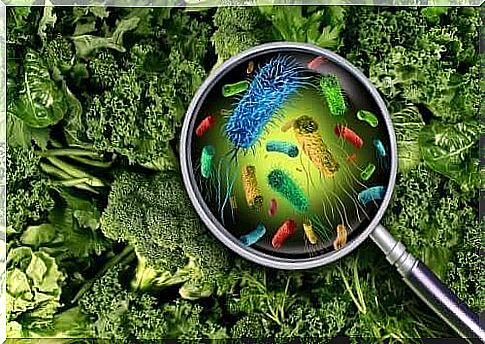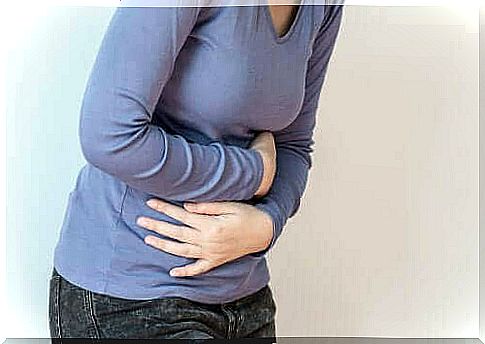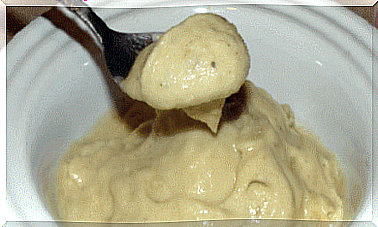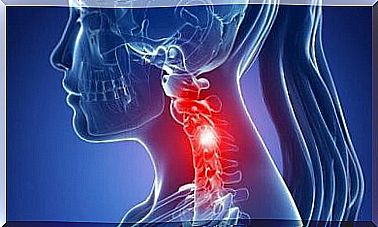Listeriosis During Pregnancy: What You Should Know

In this article, we will tell you everything you should know about listeriosis during pregnancy. Listeriosis is a bacterial infection caused by the bacterium, Listeria monocytogenes.
Although rare in healthy people, it can be really serious in risk groups, such as pregnant women and people with weakened immune systems.
Listeriosis
Listeria infection or listeriosis is a foodborne illness. It is an infection caused by a bacterium that usually lives in the wild and can come from carriers in the form of animals or infected vegetables.
For that reason, you can find Listeria in:
- Raw meat and fish
- Fruits and raw vegetables
- Unpasteurized dairy products
- Processed foods
- Smoked fish

However, cooking and pasteurization can kill the bacteria, which is why experts recommend risk groups to cook meat and vegetables and avoid consuming milk, cheese and other unpasteurized dairy products.
In addition, you should also consider that Listeria can infect foods even after they have been prepared and packaged. Foods that are ready to be eaten (such as sausages, cold cuts, etc.) can therefore also be potentially dangerous.
This bacterium can also survive getting into the freezer and refrigerator and can be transmitted from the mother to the fetus. It is very dangerous for fetuses and newborns. For this reason, the expectant mother should take certain precautions to avoid becoming infected.
Types of listeriosis
Although listeriosis is one of the most serious foodborne illnesses, fortunately it occurs rather rarely (according to the World Health Organization, there are 0.1 to 10 cases per one million people a year). Despite the low number of cases, however, it has a high mortality rate. For that reason, prevention is very important.
There are two types of listeriosis:
- Non-invasive. This is a mild form of the disease which causes a gastrointestinal infection. It usually affects healthy people. While not serious, it can be for at-risk groups, including pregnant women.
- Invasive: This type of listeriosis is very dangerous, with a mortality rate of 20 to 30%. Some of its symptoms actually include fever, muscle aches, sepsis and even meningitis.
In terms of the incubation period, it is typically one to two weeks for both types. However, it can be up to three months, which is why it can be really difficult to detect the infection early.
Listeriosis during pregnancy

Listeriosis during pregnancy is very dangerous and it is not just for the mother. The pregnant woman can actually transmit the disease to the fetus, which is particularly vulnerable. It can thus cause:
- Abortion
- Premature birth
- Infection of the fetus or the newborn baby
- Death of the fetus or newborn baby (about 22% of cases of listeriosis around birth result in the death of the fetus or newborn baby).
As we have mentioned above, the symptoms usually manifest themselves after ingesting infected products. You may therefore observe the following symptoms a few days later:
- Fever
- Pain in muscles
- Vomiting
- Nausea
- Headache
The disease can occur at any time during pregnancy. However, it is more likely in the last trimester, as the woman’s immune system may be slightly weakened there.
In terms of treatment, it is better to start it as soon as possible. In that regard, you should go to a doctor immediately if the symptoms occur. Through a simple blood test, they can determine if you are suffering from listeriosis. After that, the treatment consists of antibiotics, which will also help prevent the transmission of the disease to the fetus.
Prevention of listeriosis during pregnancy

The World Health Organization suggests five things for safe cooking:
- Maintain cleanliness. It is important to wash products thoroughly, wash hands before cooking and keep the kitchen and refrigerator clean.
- Separate raw and prepared foods. That way, they can not infect each other.
- Prepare everything completely. Food preparation at more than 70 ° C contributes to food safety. However, you should consider that some foods require special attention (such as minced meat).
- Store food at safe temperatures. To do this, avoid storing prepared foods at room temperature for more than two hours. You should also not thaw food outside the refrigerator and always respect the expiration date.
- Use water and raw ingredients safely. Experts recommend avoiding processed and pre-packaged foods.
Since Listeria can infect raw and unpasteurized foods, preventive precautions should be taken to avoid consuming these products.
In addition to the above reservations, pregnant women should also:
- Avoid consuming unpasteurized milk and dairy products (including soft cheeses).
- Heat cold cuts and processed meats (such as sausages) to at least 70 ° C before eating.
- Avoid eating smoked fish and meat.
- Store leftovers in the refrigerator and do not leave them outside at room temperature for more than two hours. In addition, they should be eaten within two to three days.
- Read product declarations and follow the instructions for storage.
Conclusion
Although listeriosis during pregnancy is a rarity, one should take certain precautions to avoid it. Pregnant women should also be especially careful because it can have fatal consequences for the fetus.
Pregnant women should maintain proper hygiene and avoid processed meat and fish, unpasteurized milk and dairy products and raw foods (special meats and vegetables). Lastly, pregnant women should go to a doctor if they start noticing the symptoms, in order to start treatment as soon as possible.









